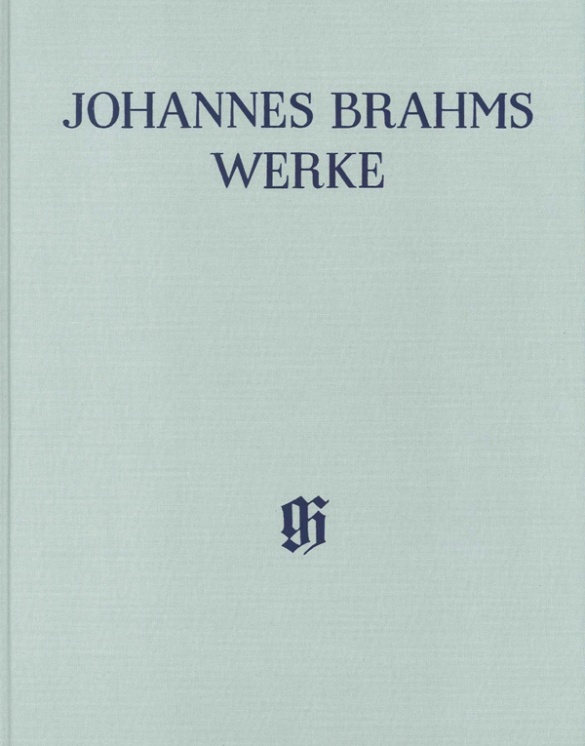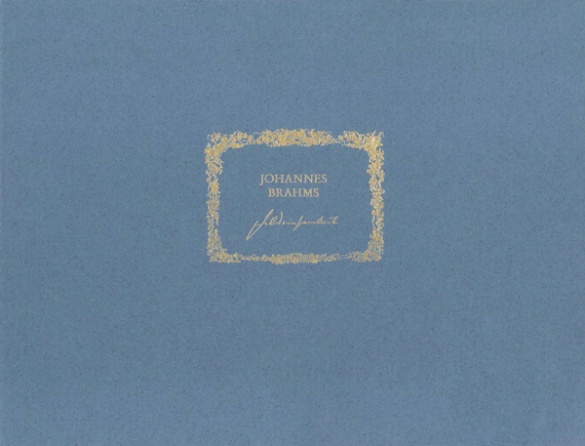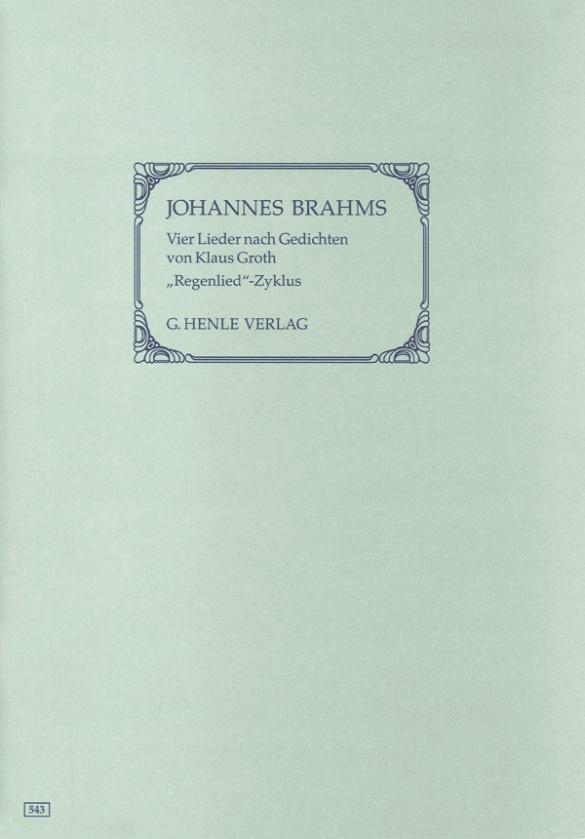

Johannes Brahms
Ser. 6, Vol. 2 | Works for Choir and Quartets for Mixed Voices with Piano or Organ, Volume 2
Content/Details
About the Composer

Johannes Brahms
His significant output comprises chamber music, piano works, numerous choral compositions and songs (including settings of folk-song lyrics), as well as large-scale orchestral works in the 1870s and 1880s. His compositions are characterized by the process of developing variation. He is considered an antithesis to the New German School around Liszt, and an advocate of “absolute” music.
| 1833 | Born in Hamburg on May 7, the son of a musician. His first piano instruction with Willibald Cossel at age seven, then with Eduard Marxen; first public performances from 1843. |
| 1853 | Concert tour through German cities; he meets Schumann, who announces him as the next great composer in his essay “Neue Bahnen” (“New Paths”). A lifelong, intimate friendship develops with Clara Schumann. |
| 1854–57 | Piano Concerto No. 1 in D minor, Op. 15. |
| 1857–59 | Choir director, pianist, and teacher at the royal court in Detmold. |
| 1859–61 | Director of the Hamburg Women’s Choir. |
| 1860 | Manifesto against the New Germans around Liszt. |
| 1863 | Cantata “Rinaldo,” Op. 50. |
| 1863–64 | Director of the Wiener Singakademie. |
| 1868 | Partial performance in Vienna of “A German Requiem,” Op. 45 (the complete work premiered in Leipzig in 1869) |
| 1871–74 | Artistic director of the Gesellschaft der Musikfreunde (Society of Friends of Music) in Vienna. |
| 1873 | Haydn Variations, Op. 56a, for orchestra. |
| from 1877 | His symphonic output begins with the Symphony No. 1 in C minor, Op. 68 (begun 1862); composition of the Symphony No. 2 in D major, Op. 73; the Symphony No. 3 in F major, Op. 90 (1883); and Symphony No. 4 in E minor, Op. 98 (1884–85): cantabile themes, chamber-music-like style. |
| from 1878 | Travels in Italy. |
| 1878 | Violin Concerto in D major, Op. 77, for Joseph Joachim. |
| 1881 | Piano Concerto No. 2 in B-flat major, Op. 83, with a scherzo movement. |
| 1886 | Honorary president of Vienna’s Tonkünstlerverein (Association of Musicians). |
| 1897 | Four Serious Songs, Op. 121. Dies in Vienna on April 3. |
Product Safety Informations (GPSR)

G. Henle Verlag
Here you can find the information about the manufacturer of the product.G. Henle Verlag e.K.
Forstenrieder Allee 122
81476 München
Germany
info@henle.de
www.henle.com
Das auf dieser geradezu erschöpfenden Basis entstehende Panorama stellt über die Funktion als editorisches Fundament hinaus einen maßstabsetzenden eingenständigen Forschungsbeitrag dar, in dem ein bislang meist stiefmütterlich behandelter Bereich von Brahms' Schaffen gleichsam auf neue Füße gestellt wird. ... Der Band ist als Ganzes ... eine Augenweide, und dass die Musik insbesondere auch in ihrer solistisch konzipierten Form eine Weide für die Ohren darstellt, wie es die überschwänglich begeisterten Rezeptionsdokumente zum Ausdruck bringen, diese Erfahrung mag vom vorliegenden Druckwerk angeregt auch klingend befördert werden. Wiecherts Ausgabe ist ein Plädoyer für historisch-kritische Gesamtausgaben, wie man es sich schöner kaum wünschen kann.
Die Musikforschung, 2012Der Herausgeber, Bernd Wiechert, hat in minutiöser Sorgfalt eine nachgerade vorbildliche Edition vorgelegt. …; der Notensatz erfüllt – bei Veröffentlichungen des Henle-Verlages wenig überraschend – höchste Ansprüche. … Sehr zu begrüßen sind neben den Faksimile-Abbildungen vor allem die Stemmata, welche die Geschichte und Filiation der Quellen bzw. die Revisions- und Editionsprozesse der jeweiligen Werke bündig nachvollziehbar machen.
Die Tonkunst, 2010recommendations
autogenerated_cross_selling




